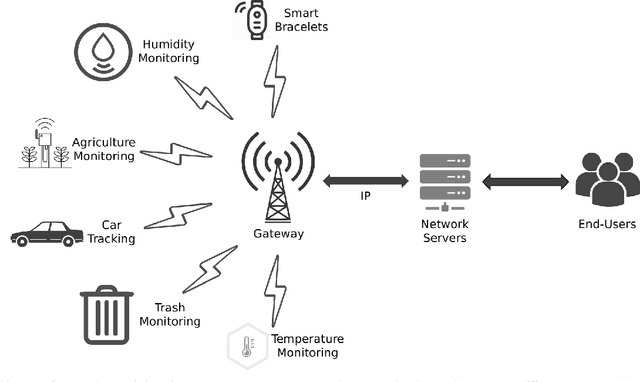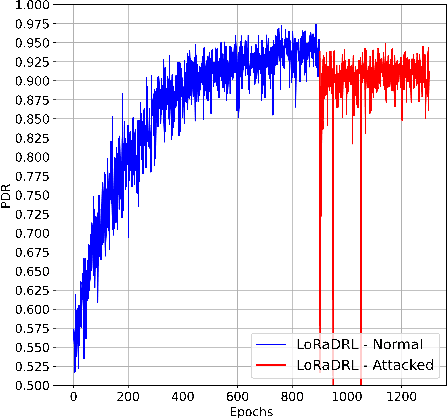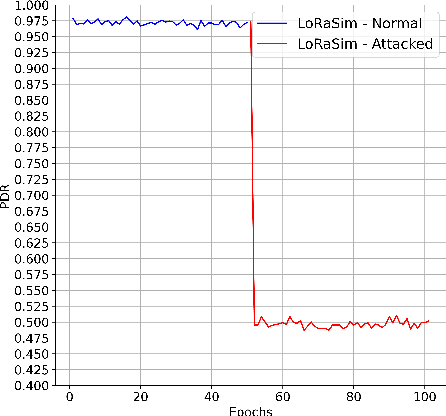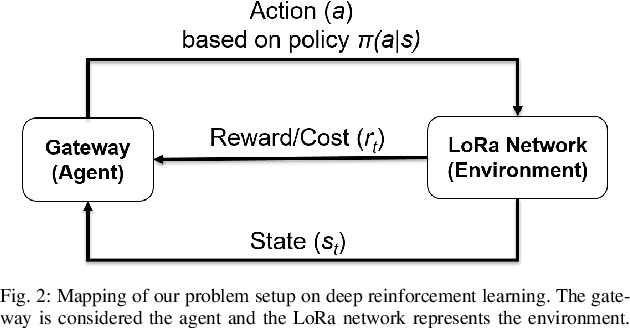Intelligent Resource Allocation in Dense LoRa Networks using Deep Reinforcement Learning
Paper and Code
Dec 22, 2020



The anticipated increase in the count of IoT devices in the coming years motivates the development of efficient algorithms that can help in their effective management while keeping the power consumption low. In this paper, we propose LoRaDRL and provide a detailed performance evaluation. We propose a multi-channel scheme for LoRaDRL. We perform extensive experiments, and our results demonstrate that the proposed algorithm not only significantly improves long-range wide area network (LoRaWAN)'s packet delivery ratio (PDR) but is also able to support mobile end-devices (EDs) while ensuring lower power consumption. Most previous works focus on proposing different MAC protocols for improving the network capacity. We show that through the use of LoRaDRL, we can achieve the same efficiency with ALOHA while moving the complexity from EDs to the gateway thus making the EDs simpler and cheaper. Furthermore, we test the performance of LoRaDRL under large-scale frequency jamming attacks and show its adaptiveness to the changes in the environment. We show that LoRaDRL's output improves the performance of state-of-the-art techniques resulting in some cases an improvement of more than 500% in terms of PDR compared to learning-based techniques.
 Add to Chrome
Add to Chrome Add to Firefox
Add to Firefox Add to Edge
Add to Edge